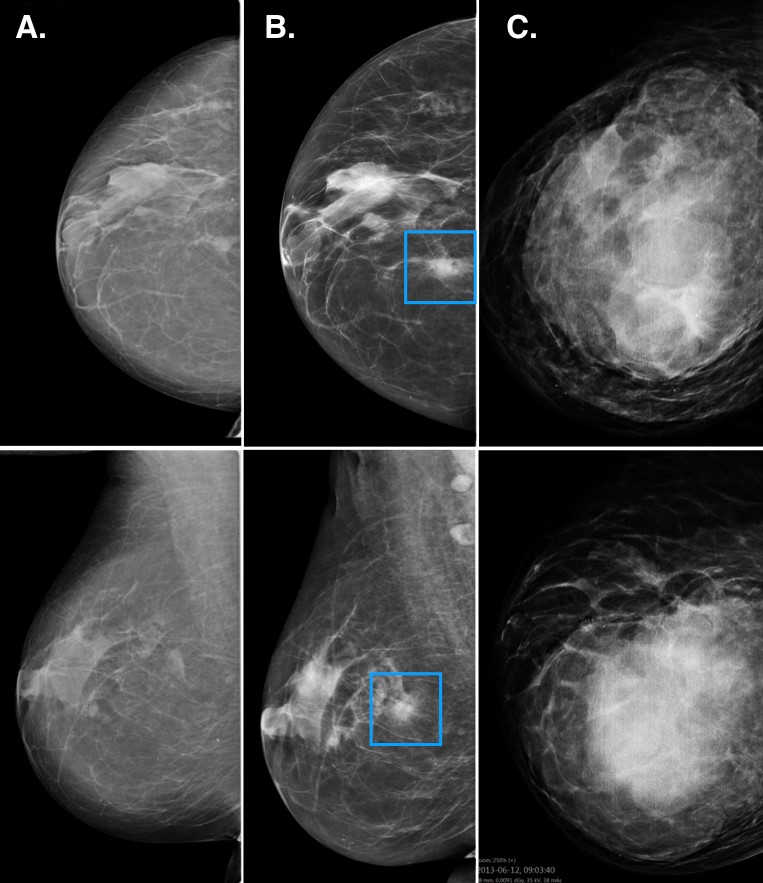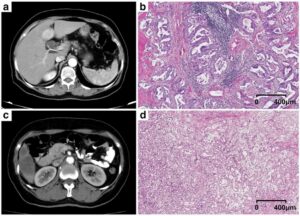In two recent publications in European Radiology, we have addressed two, of several, challenges with mammography screening. Firstly, the vast majority of screen exams are normal, which is resource-demanding, especially in the double-reading setting; and secondly, we miss cancer that can be particularly aggressive, later appearing as interval cancer.
To understand if artificial intelligence (AI) can identify normal exams, we did a retrospective review of about 9,500 double-read screen exams that were analysed with a deep-learning-based AI system called Transpara that assigns mammograms with a cancer risk score from 1 to 10. The cancer frequency increases dramatically in the highest risk group. We found that 20% of screen exams could safely be classified as cancer-free (risk group 1 and 2).
In the second study, we analysed screen-exam preceding 429 interval cancers. To understand the potential clinical impact of AI in reducing interval cancer, certain criteria needed to be met: a retrospectively visible lesion (showing at least minimal sign of malignancy) in a screen exam classified as high risk with a correct, localised CAD-mark. If these criteria were fulfilled the interval cancer rate could be reduced by roughly 20%. A proportion of these interval cancers had a grave prognosis and would likely have benefited from an earlier detection at screening (see featured figure).
Put together, integrating AI in screening could be used to identify both normal exams and exams with a high probability of malignancy, thus providing means on how to organise a more efficient screening programme, more importantly, without the need for supplementary screening modalities.
Key points
- AI can be used to identify normal exams in mammography screening.
- AI can aid radiologists in reducing the interval cancer rate in mammography screening.
Articles: (1) Identifying normal mammograms in a large screening population using artificial intelligence; (2) Can artificial intelligence reduce the interval cancer rate in mammography screening?
Authors: (1) Kristina Lång, Magnus Dustler, Victor Dahlblom, Anna Åkesson, Ingvar Andersson & Sophia Zackrisson; (2) Kristina Lång, Solveig Hofvind, Alejandro Rodríguez-Ruiz & Ingvar Andersson













